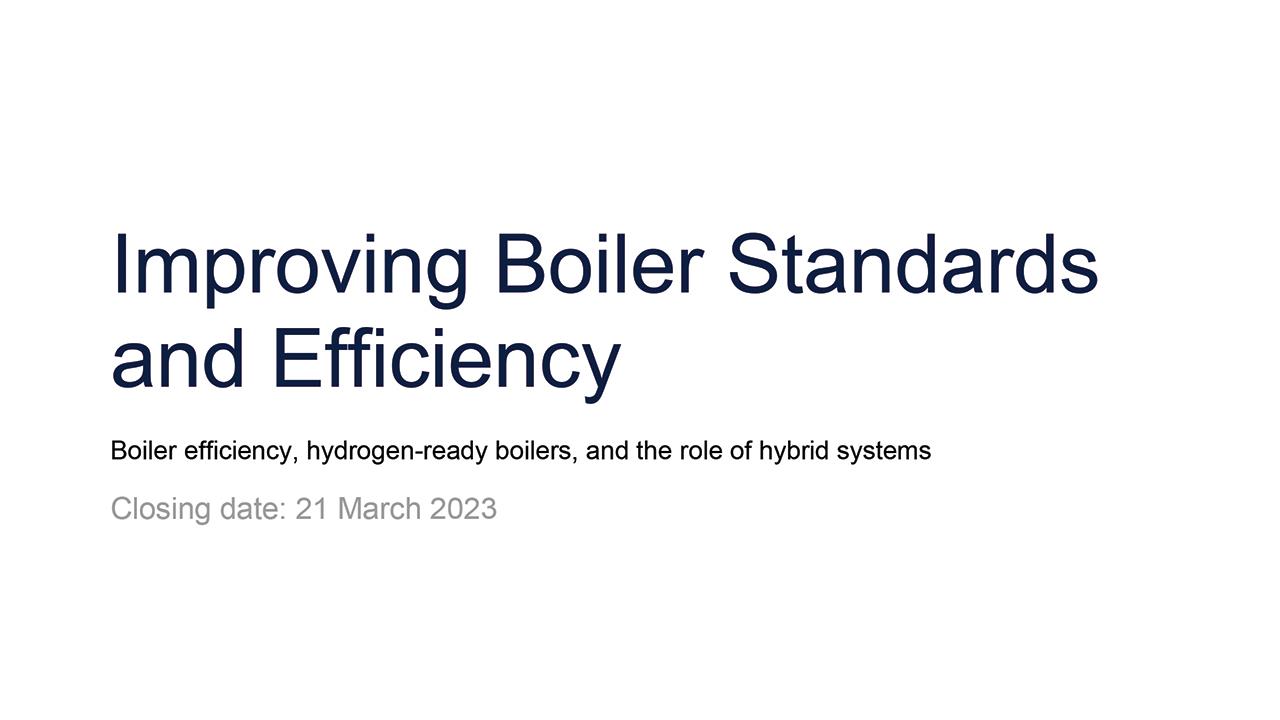

The heating industry has been at the forefront of government policies on energy efficiency and decarbonisation for many years. It’s unsurprising that we have become good at predicting whether planned polices will actually deliver the expected outcomes.
Red flags tend to be raised by proposals that ignore lessons of the past, that will be impractical to deliver in the real world, or lack coherence on the technical aspects of heating systems. No doubt many are currently casting an eye over the recently launched consultation on Improving Boiler Standards and Efficiency to see how it stacks up.
The first thing to say is that attempting to make sure that gas boilers are installed as efficiently as possible is absolutely the right thing to do. The consultation estimates that 10 million gas boilers will be installed between 2025 and 2035, the latter date being when natural gas boilers are due to be phased out. All boilers installed are likely to have a lifetime of at least 15 years, so it is essential that we make them operate as efficiently as possible.
The Boiler Plus consultation in 2018 resulted in some changes to the Building Regulations – directly prescribing how boilers should be installed. A key difference with the Improving Boiler Standards and Efficiency consultation is that the proposals will be implemented through product standards rather than Building Regulations. This means that it can only focus on how boilers are placed on the market rather than how they are installed.
The intention is to introduce UK legislation to replace the current Ecodesign and energy labelling regulations for boilers, commonly referred to as ErP, that were introduced by the EU. Back in 2008, when those regulations were initially devised by the European Commission, they included proposals that heating controls would be ‘bundled’ with a boiler so that an installer would be presented with the controls they had to install, taking away their freedom to select heating controls from the range available on the market to best suit the customer and the application.
The heating industry, led strongly by the UK, objected to this potential market distortion and worked with the European Commission to come up with a different, more practical approach. A decade later, the UK government is repeating the same mistake, proposing in this new consultation that all boilers should be placed on the market with a Class VI weather compensating room thermostat for the installer to use. We can only hope that the UK will be as willing as the European Commission to listen to the industry’s concerns on the potential negative impacts of such an approach.
It also seems odd that this consultation is suggesting that only a Class VI weather compensating room thermostat should be used. The intention to focus only on room thermostats that directly modulate the boiler is laudable, but why exclude a Class V load compensating room thermostat? Tests carried out at Salford University for BEAMA show that Class V and Class VI deliver similar performance and savings, so why one and not the other?
Reading the detail of the consultation does throw up some areas of confusion. For example, it suggests that Class VI “allows controls to include both weather and load compensation functionalities” which is not true – Class VI specifically delivers weather compensation, although some devices can contain both Class V and Class VI functionality.
There also appears to be some confusion over smart controls, suggesting that the ‘optimisation’ function in the Boiler Plus definitions referred to boiler modulation, when it clearly referred to optimum start. The consultation also claims that many “internet-enabled smart controls” are able to directly modulate boilers without any prior adaptations.
BEAMA’s view is that room thermostats installed with boilers should be both smart and incorporate load and weather compensation, rather than the current option to choose one of these functionalities, so in some respects this is moving in the right direction. However, we need a coherent technical proposal for this to work in practice.
Clearer guidance would also be welcome on the way the control functions need to be implemented to deliver both comfort and efficiency, as evidence shows this can vary.
Proposals in the consultation for improved modulation ranges and the incorporation of open communication protocols in boilers are suitable areas to be covered by product standards, but more details are needed there as well.
On the subject of open communications, there is already much work being done on interoperability and in-home communications between controls and other appliances, such as the work being done within PAS 1878. Any proposals introduced for gas boilers must be compatible with this and therefore fit for the future. Unfortunately, the consultation is light on detail in this area.
The first assessment of this policy proposal is that it is broadly heading in the right direction but will need reshaping if it is to arrive at the right destination. It is vital that industry responds to this consultation and that government listen to those responses, so that we may end up with legislation that delivers the desired outcomes.
If you'd like to keep up-to-date with the latest developments in the heating and plumbing industry, why not subscribe to our weekly newsletters? Just click the button below and you can ensure all the latest industry news and new product information lands in your inbox every week.